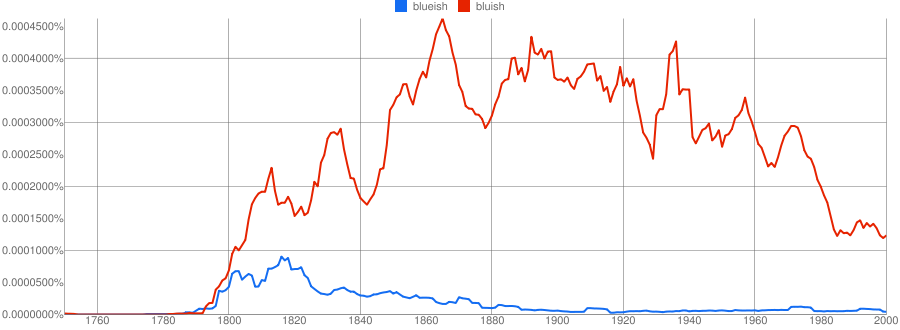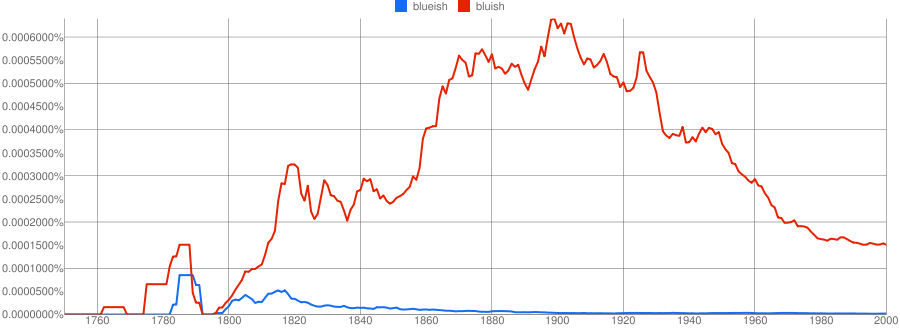I don't think it's correct to say that both are correct spellings. After looking through N-gram data, and
querying the venerable Fowler & Crystal's A dictionary of modern English usage, I find that bluish is clearly the preferred form.
Here's what Fowler & Crystal have to say:
The only satisfactory rule, exceptions to which are very few, is this: If the suffix begins with a
consonant, the mute e is retained; if the suffix begins with a vowel, the mute e is dropped.
Applying this [ ], we get (with the wrong results in italics, as a basis for exceptions): stalish;
loving; milage; livable; stirving; excitable; timous; movable; likely; dotard; judgement; hinging;
singing; gaugable; laughable, noticeable; mousy; changing; hiing; gluy; duely; bluish; wholely.
Another grammar book, A Survey of English spelling by a Edward Carney, explains the reasoning behind the rule:
The {-e} has to be kept when it is a marker of the pronunciation of the previous consonant as in
gaugeable, manageable, noticeable, traceable. A spelling *{noticable} would invite {c} =
/k/ before the as in practicable. So, singeing with /ndʒ/ is kept different from singing
with /ŋ/.
Thus, the implication is that as there would be no ambiguity between the pronunciations of blueish and
bluish, the preferred spelling is the latter.
Here are the Google n-grams for usage; first for American English:

Next, British English:

It seemed that blueish did seem to enjoy some popularity as the preferred form for some years in both
America and Britain; peculiarly, between the years of 1786 - 1792 in Britain, and in 1788 - 1792 in America, Google Books shows that blueish enjoyed the advantage, being particularly applied to describe the color of
dyes and minerals. (Here are some citations from 1788 -
1791.) The nascent field of chemistry seems to have preferred the odd spelling for some reason or the other.
But as you can see, despite that brief respite, since then bluish has reassumed its dominant position.


